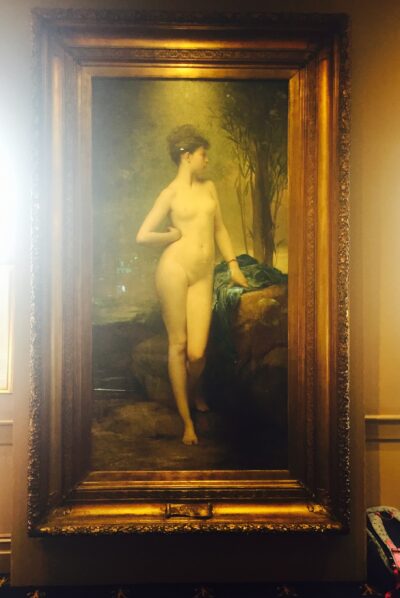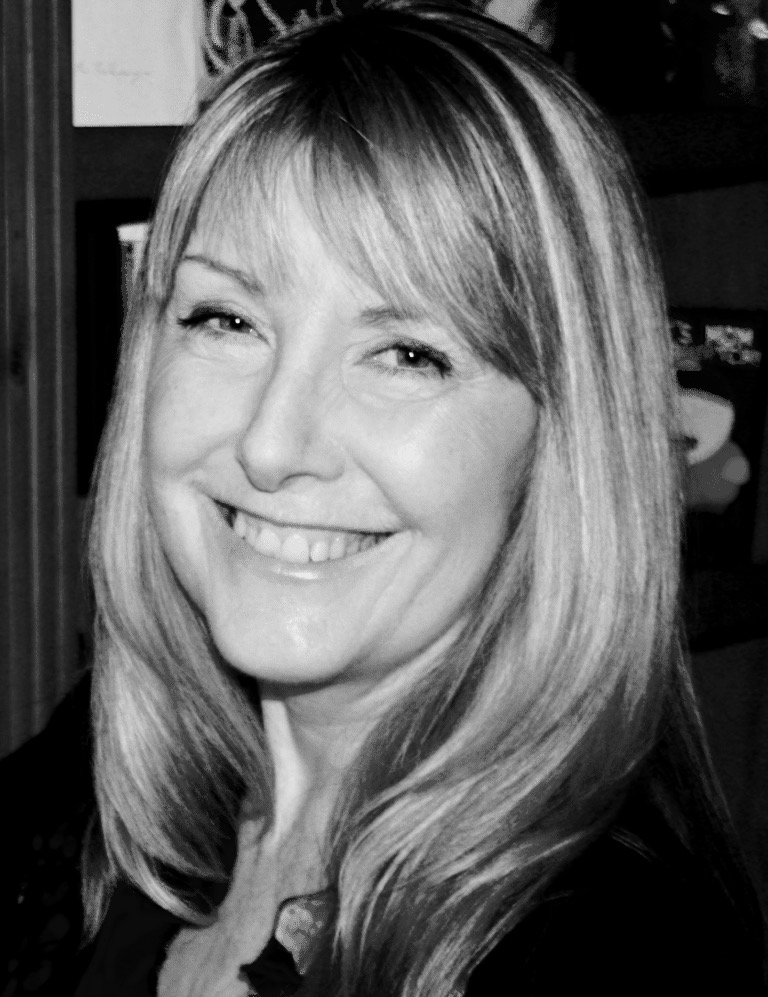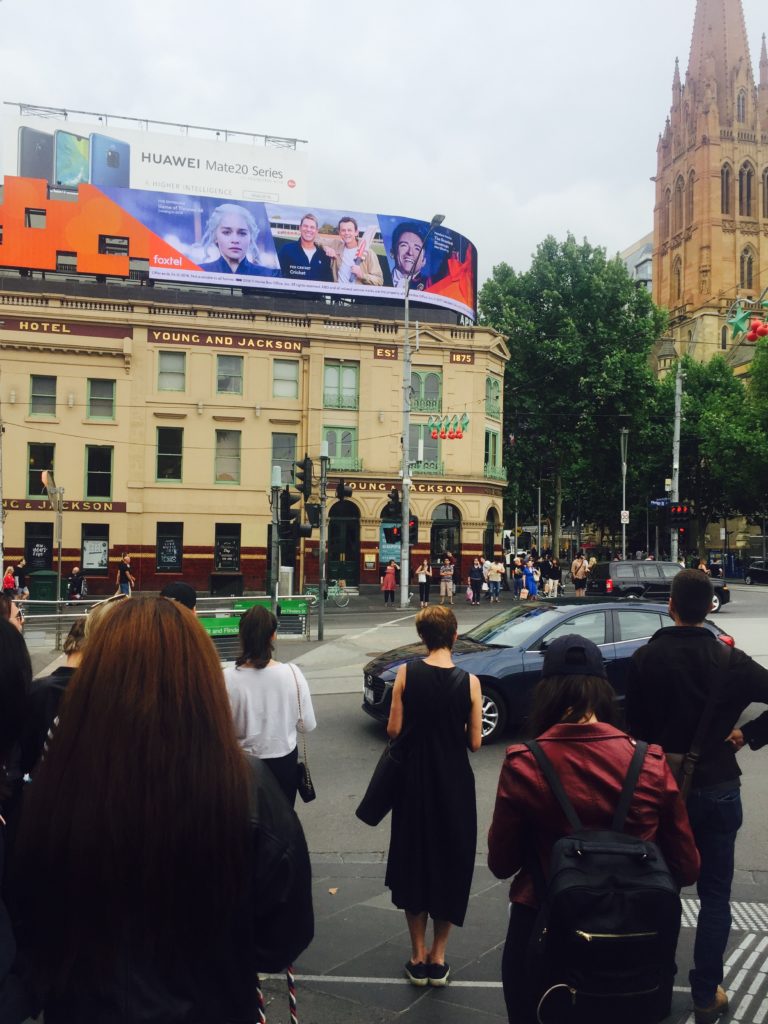
Capturing Chloe, Katrina Kell
 Katrina Kell is the author of two YA novels Juice (2000) and Mama’s Trippin (2006), both published by Fremantle Press. She recently completed her PhD, her creative thesis, a historical novel inspired by the famous painting in Melbourne’s Young & Jackson Bar. Capturing Chloe traces Chloe’s impact on an Australian family during World War One as well as Chloe’s life in the aftermath of the Second French Empire and the Franco-Prussian War.
Katrina Kell is the author of two YA novels Juice (2000) and Mama’s Trippin (2006), both published by Fremantle Press. She recently completed her PhD, her creative thesis, a historical novel inspired by the famous painting in Melbourne’s Young & Jackson Bar. Capturing Chloe traces Chloe’s impact on an Australian family during World War One as well as Chloe’s life in the aftermath of the Second French Empire and the Franco-Prussian War.
I got to know Katy well because our postgrad offices were across the corridor from each other and we were often the only people in the ghostly corridor. Even though we’ve both completed our respective degrees, we still catch up regularly for coffee to chat about writing and life.
Congratulations on completing your PhD! It’s such a mammoth achievement. What’s next for Chloe? Thanks Em. It’s a great feeling to have finally finished! I expect Chloe will always be a part of me, so I’m keen to transform my thesis into publications, both the novel Capturing Chloe and a non-fiction work sharing my discoveries about the painting and its enigmatic model.
I’m unsure of whether or not I should turn my current work-in-progress into a PhD project. What made you decide to take Capturing Chloe into a PhD program? Could you have written Chloe as an independent writer? As someone who dropped out of high school at 15, the challenge of completing a PhD was a huge motivation. That, and the allure of full-time research and writing time on a project I was truly passionate about, not to mention the support of two wonderful supervisors in Simone Lazaroo and David Moody. And yes, I would still have written Capturing Chloe independently, but I believe the depth of research the PhD allowed me has resulted in a richer and more complex novel.
You’ve written across genres and novels of different lengths. When you start a book project do you have a fair idea of what it’s going to be like or do things unfold as you write? Honestly, I have no idea how each new book project will develop. So I just follow my creative impulses and allow my characters and research to guide me. I talk about this creative approach in my PhD thesis – trusting the role of imagination and intuition – because for me as a writer that’s the key – a sense that there’s something I will learn or discover by letting dreams and words flow uninhibited until they reveal the true essence and heart of the story.
How important is it for you to stay connected to other writers? It’s important to stay connected with other writers, but it can depend on where I am at on the writing journey. In the embryonic stage of a new book project I tend to isolate myself completely, but once the story has found its shape and direction, I love connecting with other writers and sharing ideas about our works-in-progress.
..the only advice I can offer emerging writers is to trust yourself and your imagination and stay true to your deepest instincts and intuition.
Did you have a mentor before you were published? What are the benefits of having one? Some of my short fiction was published before I had a mentor. I had written about 20,000 words of my first young adult novel Juice when I was offered an Australia Council emerging writers’ mentorship for West Australian writers. The award-winning young adult author Brigid Lowry was my mentor, and her insights and feedback on my manuscript were incredibly valuable and confidence building.
As someone who has emerged, what advice do you have for those of us who are still emerging? My writing light has been hiding under a bushel, so “re-emerging writer” is probably a more accurate title. So, the only advice I can offer emerging writers is to trust yourself and your imagination and stay true to your deepest instincts and intuition.

Do you have a regular writing routine? What does it look like (if you do have one)? Mm, I’d have to say yes, if you count day-dreaming, reading and scribbling quick notes a writing routine – I do that on a daily basis. For me, writing happens organically, so my first drafts are a messy patchwork of sentences scratched on the back of supermarket receipts, or old envelopes, and occasionally some notes on my phone. I need the connection of pen or pencil on paper before moving my work to a computer.
Who are your favourite writers? George Moore, Michael Ondaatje, Georgia Blain, Richard Flanagan, Gillian Mears, Chimamanda Ngozi Adichie, Kate Grenville, Geraldine Brooks, Peter Carey, Kim Scott, Charlotte Wood, Amanda Curtin . . . is that too many? Oh, and Michelle de Kretser . . . but there are so many others too, I’m a compulsive and eclectic reader.
Who is your favourite fictional character?“Edward Dayne” in George Moore’s 19th century autobiographical novel “Confessions of a Young Man” – a truly obnoxious but strangely loveable character who I’ve managed to weave into my novel Capturing Chloe.
What’s your idea of perfect happiness? Watching the scenes unfold beneath my eyelids as I soak up some late-afternoon sunshine, oh, and enjoying one of my husband Dave’s famous foot rubs.
What’s your most treasured possession? I have so many treasured possessions and it’s hard to narrow it down to just one. But the following three are extra special and not surprisingly they all involve words. 1) The transcript of a beautiful heartfelt speech my daughter Megan wrote for me and Dave on our wedding day – it never fails to bring tears to my eyes. 2) A romantic poem Dave wrote on our 10th anniversary, including a cheeky verse about the leopard skin pants I was wearing on the night he met me.3) And a hilarious letter my Great Uncle George wrote to me from Aberdeen in Scotland, not long after my family emigrated to Australia. George wrote that he still thought of me as a “Miss I Want Out”, something he remembered me saying as very determined two-year-old when he first met me in Glasgow. George was a WW1 veteran, and a larger-than-life Australian with a cheerful booming voice that still lives large in my imagination. I was incredibly touched by his letter, especially as my dear Great Aunt Ginny was sadly dying at the time he wrote it.
What’s your favourite journey? It would have to be my second research trip to France – walking in the footsteps of Chloe’s model through the cobbled streets of Montmartre, and then the train trip to the Somme region to research the experiences of Australian diggers during WW1 at sites and museums in Amiens, Albert, Peronne and Villers Bretonneux.
What’s next for you? I’m researching and writing a semi-autobiographical novel about a teenage girl’s struggle with Obsessive-Compulsive Disorder (OCD). As a young adult, I was besieged by intrusive thoughts and ritualistic compulsions, so I am drawing on my own experience of OCD, and the unusual strategies I used to manage it. My goal is to write a compassionate and humorous novel offering insights into an often-misunderstood mental health disorder. I was also very fortunate to receive a development grant from Culture and the Arts (WA) to carry out research in the Kimberley region of Western Australia. A significant thread of novel explores the impact of invasive cane toads in the Kimberley, and how helping to mitigate the spread of these toxic amphibians, has a cathartic effect on my troubled young protagonist.
Find Katrina here: https://www.katrinakell.comand follow her on Instagram @katykell2019 or on Facebook @katy.d.kell
One Comment
Zanty Peck
Wonderful interview I enjoyed it immensely